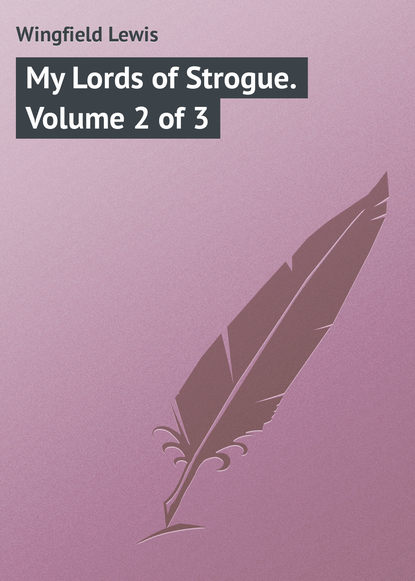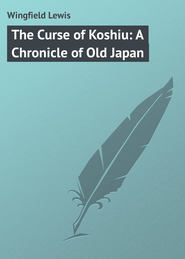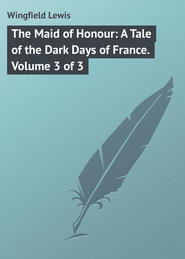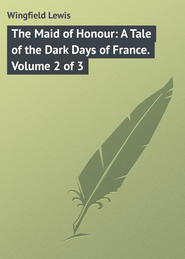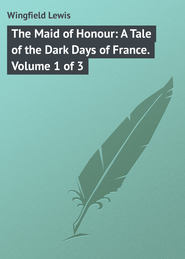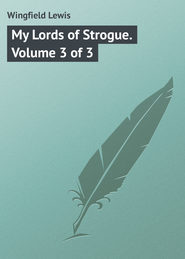По всем вопросам обращайтесь на: info@litportal.ru
(©) 2003-2024.
✖
My Lords of Strogue. Volume 2 of 3
Настройки чтения
Размер шрифта
Высота строк
Поля
'Indeed, and I'm an old fool,' he admitted. 'Nothing, as you said, can come of this sort of thing but noise. I can't afford to be kilt, for I'll be wanted later.' Then a thought came as a gleam of comfort. 'If I could kill my man,' he said, 'that would be doing good service to ould Ireland. But the devil looks after his own. He's much more likely to make daylight through me.'
Lord Clare was more than annoyed; he was seriously disturbed. If he were to kill Curran, his position would be fraught with difficulty. The mob loved Curran; they would certainly tear to pieces the man who slew him. If he, by chance, escaped, he would be able to show his face no more; and, having ceased to be useful, the authorities in London would certainly throw him over. Was this wretched little pigmy always to cross his path? Lord Clare ground out a curse, and determined (with a hasty prayer to his tutelary deity with the horns and hoofs) that if the first fire turned out harmless, he would declare his honour satisfied, and decline a second shot. Meanwhile he improved the shining moments-Cassidy having rushed off to fetch the barking-irons-by sending a special messenger to Ely Place, to order a saddled horse to be brought to the mall in Stephen's Green; a precaution in favour of escape, in case an accident should happen to the popular favourite.
Speedily as challenge had followed insult, he saw with chagrin that there was no hope of keeping the matter secret. The altercation had been witnessed by several gownsmen who happened to be passing out of the Commons, and who, rushing across the road to Trinity, had bawled to all whom it interested that 'Curran was about to pistol the chancellor to Hades.'
The news flew like wildfire from court to court, for the undergraduates bore the latter no goodwill, by reason of the recent visitation. They poured out like a flock of rooks, and were already perched on wall and branch when the interested parties arrived.
There were not two opinions as to which way they hoped the affair would end. Of the chancellor's enemies among the scum, there was no slight sprinkling, Phil having also rushed away to announce to sundry cronies that there was going to be great sport. Lord Clare regretted his choice of a second. He had selected him as likely to obey his principal, instead of leading him, as he had a right to do; but he reckoned without the pugnacity which underlies the Irish character, and which is certain to burst forth on the first symptom of a row. How could Cassidy guess (who was, by nature, blundering and muddle-pated), that my lord chancellor really wished to back out of his challenge? Was he not an Irishman? That he was no coward all the world knew. The giant put down his peculiar manner to an ultra-refinement of courtesy and high-breeding, and was specially anxious to allow him to air his politeness without losing a point. He was extremely obstinate, therefore, declining to listen to anything his principal proposed-so peremptorily, indeed, that he would have marvelled at his own audacity, but for a conviction that he was doing what was expected of him.
'Ground! gintlemen, ground!' he cried in delight, as a sort of salutation. 'Blow measurement! We'll hip the puny babbler, my lord! Hip him-hip-hip! Bedad, your lordship's puce silk coat is in your favour. The daylight's waning. I can hardly distinguish your figure from the grass. Sure it's dewy, and your shoes are thin. Stand on my roquelaure. 'Twill prevent your taking could!'
'Damn his officiousness!' muttered his principal, with a scowl.
Mr. Curran met with such an ovation from the heavy flight of rooks in the trees, as his small figure loomed in the twilight, that his spirits rose again. His temporary humility was gone. He, too, was a Hibernian war-horse, with a love for the clarion's bray, although his bouts were more in the way of arguments than cudgel-playing. The idea of shooting down, with his own dusky hand, Ireland's recreant son, her bitterest foe, might well raise his spirits.
Charlotte Corday, even though she did her country transcendant service, cannot be acquitted of the charge of murder. It is not convenable for a young lady to enter the bath-room of an unprotected gentleman, and, having lodged a knife in his flesh, to retire behind a curtain and await her fate. But here was an analogous case, without its indecorous elements. A frowsy-looking mouse had bearded a gorgeous lion, and told him the simple truth about himself, which more timorous animals were content to whisper behind his back. That lion, taking offence, had challenged his small foe to mortal combat. Well, the mouse would try to slay that lion, and, the combat being on equal terms, there was no murder about the business at all; a case of retribution, simply. David and Goliath-nothing more. Anything more convenable could not possibly be seen.
So Mr. Curran became quite jubilant, and seeming, to his surprise, to detect something which looked like the hesitation of fear, set himself to taunt the fine-looking gentleman opposite, who made really a splendid appearance in his exquisitely-fitting silken clothes, with a large diamond glimmering in a soft fall of lace, another in his hat-loop; while, as for the silver-hilted couteau de chasse which dangled from a silver belt, nothing could be more perfect in workmanship, more chaste and elegant in design.
'Is the State-doctor ready?' shouted Mr. Curran, who was in highest spirits by this time, amid crows of merriment. 'Sure he's always prescribing steel to his patient; bad luck to him!'
'Is it steel?' retorted Cassidy, whose principal pretended not to hear. 'Here's steel for ye! The prettiest irons in all Leinster; a gift to me from Lord Glandore. Twelve inches long they are. Tear and owns! but they're lovely boys; as bright as moonbames. If they could spake, they'd thank ye for giving them their liberty. Why, they've not been aired these six weeks.'
'Take care,' Terence observed, laughing; 'the one ye're flourishing is at full-cock.'
'Then full-cock your own, and let's blaze,' retorted the other, readily; which sally produced a yell from the rookery.
'If Mr. Curran will apologise-' Lord Clare began, glancing nervously round, for it was nearly dark, and the mob was thickening fast.
'Ah! Go on, now; it's joking ye're,' shouted Cassidy, holding his sides. 'Your lordship's too polite entirely. Sure ye couldn't do it. Here are the rules laid down by the Knights of Tara, which you know may not be broke' (taking a small manuscript book out of his voluminous breeches-pocket). 'See No. 7: "No apology can be accepted after the parties meet, without a fire." Come, gintlemin. Proceed, proceed. Ould locks-barrels and stocks! Go on, du now! Here are your pair of bullies, nicely primed, my lord.'
'One will be sufficient, probably,' frowned his principal.
'Rule 33,' retorted the glib fire-eater: '"You may not be satisfied till two shots are fired at least, unless the apologiser hands the other a cane and submits to a good beating."'
'That's a Galway rule, which doesn't obtain in Dublin,' Terence remarked. 'Not that my principal means to apologise; far from it.'
'Irish blackguard is one of our staple manufactures,' suggested Mr. Curran, to keep the ball rolling; but his adversary was imperturbable. He was a cur as well as a tyrant, then?
'Listen to me, my lord,' cried the sturdy advocate, crossing his arms. 'In 1173, MacMurrough betrayed the land to Strongbow, as you are betraying it now to Pitt, and received the wages of sin. Take a lesson from history. Hunted by despair, he died by his own hand. Under Henry II. England and Ireland were for a moment one. But England grew sick of the faint smell of the shambles, and abandoned her slave. Much good did that Union do!'
Lord Clare was stung to desperation. Openly to talk of a Union at this juncture might be productive of incalculable harm.
'Make haste, make haste!' he said pettishly. 'We don't want all the metropolis to look at us.'
The first shot did no mischief. The chancellor fired wide, his wandering bullet creating a transitory excitement in a knot of bystanders. Mr. Curran's pierced his adversary's coat.
'The devil looks after his own, I might have known it,' he muttered, tossing away one pistol and raising the other. 'The gentleman stands too far off. Let him come closer. I can't see him.'
Lord Clare approached nearer, and again fired wildly; while his opponent was so diabolically deliberate, that he could not help observing through the stillness of expectation: 'It won't be your fault if you don't kill me, Curran!'
'Did ye ever hear tell of Moran's collar?' inquired the advocate, as, closing one eye and screwing up his mouth into an O, he covered the chancellor. 'It was worn by justices in ould days, and had the wondrous property of contracting or relaxing according to his just or unjust conduct. How mightily it would have choked your lordship!'
Curran fired at last. The chancellor staggered, but recovered himself.
'A hit!' shouted Curran.
'A hit, a hit!' yelled the rooks, in the gathering darkness. One piping bird-voice cried above the rest, 'Moiley shall eat him!'
A multitude of friends vied with each other in sympathy for the chancellor. Cassidy supported him, despite his struggles, on his knee, while one ripped open his small clothes and another produced a probe.
On the fair skin there was a dark mark-a tiny trickle of blood like a pin's scratch. The sight of it produced a murmur of astonishment. Lord Clare could conceal his fury no longer.
'Damn you all! Damn you, I say! for a pack of donkeys!' he cried, almost foaming. 'It's the gingerbread nuts that I eat in the long debate-they've saved me from a bullet-wound-there-laugh away, and get you gone-I've danced too long already to your asinine piping!'
'One more blaze, my lord?' coaxed Cassidy, unconvinced, amid general tittering.
But he was not long unconvinced. He saw that in his principal's eye which reduced him to lowliness at once, and he bowed his head as the wounded warrior quoted with majesty Rule 22:
'"If a wound agitates the nerves and makes the hand shake, the business must end for that day at least." The gingerbread nuts have made my hand shake: at all events you may take it so, if you please. Provoke me no longer-clear away this rabble of idiots at once, or I tell you plainly, Mr. Cassidy, that you'll be sorry for it.'
The giant could not but perceive that his principal really was frantic, and hastened to obey his behests.
'Well, well,' he meditated. 'I'd rather be badly wounded than be saved by gingerbread nuts! It's an ignominious accident, and laughable, and the chancellor cannot bear being laughed at.'
Cassidy busied himself in 'claring the coorse,' as he termed it; and while he did so, the aggrieved chancellor watched him with a sullen and lowering gaze. It was quite dark by this time.
'Terence,' he said presently, with unaccustomed kindness in his voice, 'come hither. You dislike me, I know; and no wonder, prejudiced as you necessarily are by the company you choose to keep. Yet, for your mother's sake, I fain would be your friend. You are a plucky fellow. I honour pluck, and genuinely like you, for yourself, in spite of you. I'm not so bad as I'm painted. Few people are. I'll give you a bit of advice. Act on it.'
Curran approached to listen (comforted, though he had not killed his enemy, by the axiom he was so fond of quoting, that the devil, who is more powerful than the best of men, looks after his own). He was amazed to behold quite a human look on the dragon's face. The toothsome smile, so redolent of falseness, was gone; the hatchet lines had curled themselves up into a mask which really resembled bonhomie. Can grapes grow on thistles? Was it possible that this adamantine nature could be softened? Wonders will never cease, although some people do say that there's nothing new under the sun. Curran listened, trying to follow the direction of those wandering eyes in the obscurity which he could not pierce.
'Terence,' the chancellor said, 'you have a foe-unscrupulous and bitter-who will ruin you if possible. I know not why. Be very careful, or you will come to ruin. One foe in the dark is worse than a score by day. You have slighted that enemy somehow. You are on the edge of quicksand; once beyond the brink, you must be swallowed up. For your dear mother's sake I will save you while I can. But I may not be here always. A thousand things might happen. It's due to her as well as to yourself to keep yourself free from obloquy. Think how her pride would suffer. Take off that ridiculous necktie.'
Honest Phil was also listening with craned neck and goggle eyes.
'It must be Biddy. She hates Master Terence, does she?' he muttered to himself. 'Why? maybe she thought him comely, and he would have naught to do wid her, being so tight entranced by Mistress Doreen, God bless her! Faix, she's a bad lot-taking to sodgers! And I thought her fit for Paradise. I saw her just now by the quickset beyant, in her velvet hat and feathers, and my lord saw her too, no doubt. I'll tell the masther who 'tis that's working the mischief, and set his mind at rest.'
'Half-confidences are worse than none, my lord,' blurted out Curran. 'If you'd really do the lad a turn, speak out. Why give him a nut to crack?'
'Betwixt you and me, sir,' Clare said with hauteur, 'there can be nothing but animosity. I try to make things as pleasant as I can, and you publicly insult me. I purposely fire wide; you try all you know to kill me. I would gladly have been your friend.'
'Begorra! such a friend,' growled Curran, 'as I'd help out of mee cabin with mee boot! But never mind us. We're talking of this lad. Who's his enemy-who is it that's playing devil's capers among honest men? We know that they're not all saints who use holy water!'
Lord Clare was still looking away into the darkness, while Phil followed the direction of his glance, and said nothing.
'Don't press him,' Terence said, with coldness as chilling as the chancellor's. 'If he chooses to make confession for conscience' sake, so be it-I will be under no personal obligation to his clemency.'
'Silly boy! I want to save you, and, like the other asses, you pose and mouth heroics!' Clare said impatiently. 'Your name was on the list of those scatter-brains who were caged to-day, but I struck it through with my own pen. Yet I tell you fairly that if you commit yourself beyond a certain point, I shall be powerless to protect you. I should bring more odium than I dare upon the Government, if I were instrumental in stringing up a lot who deserve the rope, and saving the worst of all because he happened to be my old friend's son. I can't do more than I am doing. Even Mr. Curran here should tell you that. I tell you that you have an enemy who would gladly destroy you. You must guess who it is. Who is there whom you have injured? I tell you further that Lord Camden has signed a warrant for your arrest, which I believe is in his bureau. He deplores with me that one of the aristocracy should be a cause of scandal. But he may be called upon to permit execution of that warrant, and, acting as you do, I don't see how he can refuse to let justice take its course. Had you no enemy it might probably lie snug enough. But that enemy will ferret it out ere long, I fear. My boy, I earnestly implore you to leave the country. Every port shall be left open. Go to Paris-Vienna-Rome-anywhere. If you are short of funds I will provide them-come! I would so gladly see you gone,' he concluded after a pause, during which Terence's heart was touched, and Curran stared at this new aspect of the lord chancellor. 'For if I mistake not, such events will happen here ere long as will cause the best-balanced mind to quake.'





